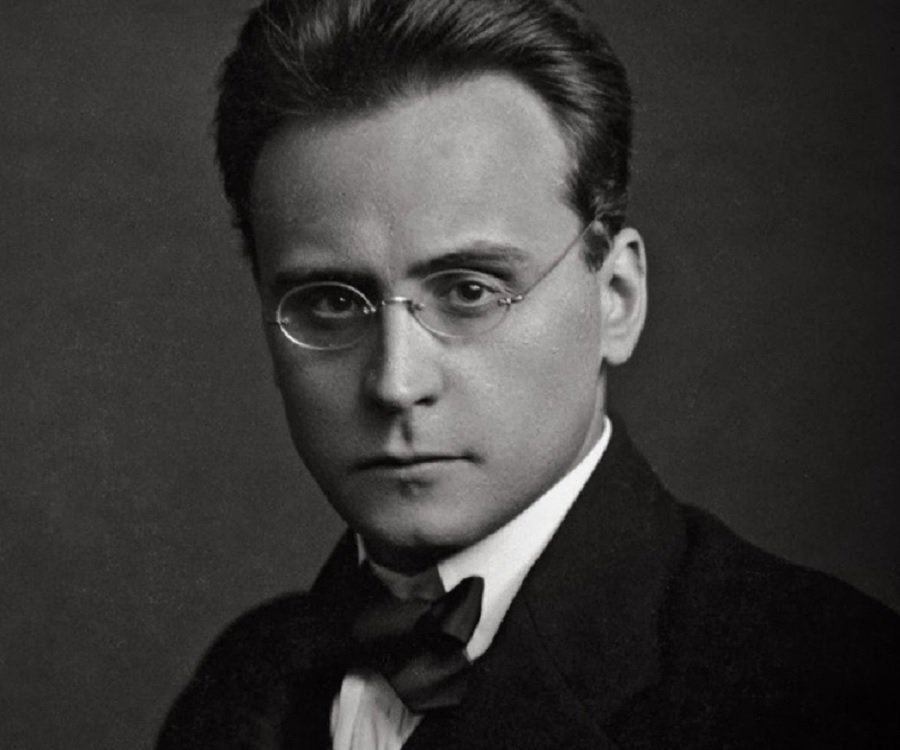Time’s Arrow Festival hits the mark with launch of Webern odyssey

The Time’s Arrow Festival kicked off its Anton Webern series Tuesday afternoon at Trinity Church.
The composer Anton Webern once responded to public incomprehension of his music by saying his tunes would someday be sung in the street.
That day may not quite have arrived, but Tuesday afternoon twenty of his songs resounded through St. Paul’s Chapel in lower Manhattan to enthusiastic applause from an audience consisting of tipped-off Webernites and surprised tourists on a day-after-September 11 pilgrimage to the area.
The free afternoon concert, in which Webern’s songs alternated with poetic chansons by the early Renaissance masters whom the composer considered his nearest predecessors, launched a two-year traversal of Webern’s complete works by Trinity Church’s new-and-old music festival, Time’s Arrow.
The concentration and brevity of Webern’s compositions can make them seem like a blip on a program of lengthier pieces, a somewhat bitter apéritif to the Tchaikovsky main course. But performed in larger doses with the commitment and assurance shown by Tuesday’s young-skewing group of artists, they impressed mightily with their inventive intensity and force of expression.
Furthermore, the selection of songs—from the five songs of Webern’s Op. 3 to the three of Op. 25, his earliest and latest acknowledged works in the genre—showed the evolution of his style from suavely Romantic epigrams to a fiery texture of sudden leaps and juxtapositions.
Four singers performed five Webern song sets, bringing spontaneous, natural phrasing to all of the composer’s varied styles, even the most furious and disjunct. Pianist Steven Beck was on board the whole way, wrapping Op. 4 in Schumann-like mellow tone and sharply etching the sudden contrasts of Op. 25.
Compared to Webern’s tiny, polished gems, the delicate lute songs of Johannes Ockeghem, Heinrich Isaac, and Ludwig Senfl—themselves a reaction against more complicated and grandiose music of the time—sounded downright long-winded as they backed up and repeated texts, with richly extended melismas on single syllables.
The chapel’s reverberant space picked up all the voices and bounced them back, putting the singers almost in dialogue with themselves. An unfortunate effect of this voice-swelling reverb was the drowning out of Arash Noori’s artful lute playing, which was heard to best advantage in two solo pieces by Isaac, La morra and La battaglia. Noori’s fine ear for singing line and tone colors no doubt enhanced the vocal performances as well.
The vocal standard remained high throughout the recital. Mezzo-soprano Melissa Attebury brought robust tone and expressive surge to the Five Songs from “Der siebente Ring,” Op. 3. Attebury and Beck successfully navigated the set’s uniformly moderate tempos and hazy texts by Stefan George, which challenge singer and pianist to find and bring out the telling detail.
Returning later in the Three Songs (Gesänge) from “Viae inviae” by Hildegard Jone, Op. 23, Attebury brought focused tone and unforced agility to the capricious, leaping vocal line.
Billed as a tenor on the program page and as a countertenor in his program biography, Ryland Angel sounded like a bit of both, floating seamlessly in and out of a delicate falsetto in his sensitive phrasing of Ockeghem’s melancholy tribute to his late master Binchois (“Mort tu as navré”) and Senfl’s glowing tribute to music (“Lust hab ich g’habt”).
Although tenor Steven Caldicott Wilson gave focused tone and a touch of vocal heft to Webern’s Five Songs on Poems by Stefan George, Op. 4, his discreet delivery pointed up the connection to the preceding Renaissance items. Again confronted with uniform tempos and Webern’s avoidance of obvious text-painting, Wilson and pianist Beck dug successfully for musical gold in the nuances.
Soprano Molly Netter colored the smooth, chant-like vocal lines of Isaac’s “Quis dabit capiti” and Ockeghem’s “Ave Maria” with expressive inflections and subtle shifts of vocal placement.
Following this Renaissance turn, Netter stuck around for Webern’s Four Songs, Op. 12. Setting four poets of different eras and nationalities, the composer seemed to cut loose a little, with contrasting moods and even some outright text-painting here and there, all duly noted by Netter and Beck.
Netter was back yet again in the penultimate segment, joining tenor Angel in two duets by Senfl. The first was the only comic number on the program, a charmer titled “Ich weiß nit (was er ihr verhieß),” or, I Don’t Know (What He Promised Her), delivered with many a smile and a nod, in case one missed the abundant double-entendres.
Angel introduced “Ach Elslein” as “Senfl’s most famous tune,” and hearing him and Netter each croon a stanza and join together on the last, it wasn’t hard to imagine this wistful ballad as the “Smoke Gets in Your Eyes” of the sixteenth century.
For the last item, Webern’s Three Songs to Poems by Hildegard Jone, Op. 25, the vocal cast seemed to call up reinforcements in the person of soprano Sarah Brailey. While one had sensed the other singers singing with power in reserve, Brailey drew liberally on her reserves to hit the dramatic highs and lows of Webern’s most starkly contrasted writing. Like her colleagues on this program, she could also neatly turn a phrase and find the expressive thread in Webern’s most disjunct vocal lines.
It made a brilliant finish to a program that left one, would you believe it, wishing for still more Webern.
* * *
The streaming video of this concert can be viewed at trinitywallstreet.org/video/times-arrow-webern-0. Closely miked, with voices less blurred and lute more audible, the recording produces an intimate, living-room effect quite different from hearing it live in the resonant chapel space.
The Time’s Arrow festival continues with four different programs of music by Webern and others at St. Paul’s Chapel, 1 p.m. and 8 p.m. Wednesday and 1 p.m. and 8 p.m. Thursday. Admission is free.